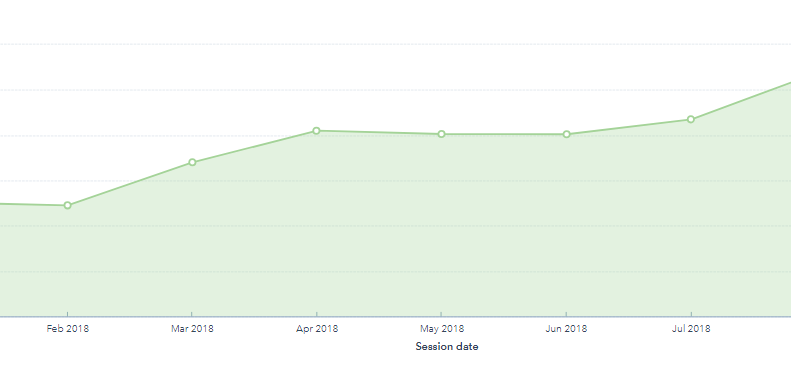5 Key Ingredients for Successful Content (That Actually Ranks on Google)


Creating valuable, actionable content for your target audience is no longer a negotiable part of your marketing strategy. We're over the hump of debating, "Should I have a blog?" or, "Should a have a content marketer?"
It's time to take your content marketing strategy to the next level to get your content ranking organically and reeling in more eyes month after month. There are already many resources out there that can help you stay up-to-date on new updates in SEO and Google ranking factors--so we're going to hop, skip, and jump right past that to the meat of this post.
Today, I want to give you 5 of the most important ranking strategies you use in every piece of your blog and pillar page content to increase your chances of actually ranking on Google for the right viewers. Even if you've explored longer and more comprehensive content marketing guides like this one from Neil Patel (which is both a dope piece of content and a fantastically ironic example of how Neil gets his long-form content to rank), these are additional strategies to try on top of his, pinky swear.
Write for a Real Human
There are some factors of SEO that involve getting eyes to your content. But you absolutely cannot forget that each person who visits your posts and pages is just that--a human. If you write in straightforward, easy-to-understand language with elements that our eyes love, you'll keep that human's attention and create a piece they actually want to read, share, and refer back to.
And research shows that read time is a big ranking factor for Google, so keep those eyes on the page longer to boost your SEO cred.
If you're the marketer responsible for creating content for your company, than you likely have a hard time convincing your more technical team members to contribute to your blog. But if you know that brainpower is what you need to make your content marketing campaigns successful, you might feel pinned in a corner. People who don't see themselves as natural writers might be afraid to put their names on posts or delay in pursuit of perfection, or they might even feel totally uncomfortable just serving as a subject matter expert for your marketing materials.
If the above feels painfully familiar to you, focus on helping your team understand that blog posts are just thoughtful conversations that live online.
Just hold a conversation with your SMEs, be curious, and tell their stories. Help them focus on seeing a blog post as a human-to-human conversation, and you'll find you have a much better final product.
Then, use bulletpoints, bolded sentences, call-out formatting in your stylesheet, screenshots, and accompanying videos (even if short) to drive your point home.
Don't write just for Google, use more words than actually necessary, or use massive paragraphs that make your reader want to bounce. Focus on your reader as an individual person, and do everything you can to serve them.
Say-Do
Pulling in from our core values here at Revenue River, "say-do" is a simple practice to help you rank better on Google. Deliver in your blog posts what you promised in your headlines. If you've found a topic that you think you want to write on, stay focused, and create a post that really answers the questions your readers found you through in a Google query.
Use an outline when you begin to map out exactly what you think you need to cover in the post, making sure you've done your keyword research to understand the long-tail topics you'll cover in the post and how your reader will relate them to the bigger picture.
Delegate Technical SEO
In the last few years, you've likely heard about search engines' shifts to serve humans over algorithms and fight gray-hat SEO. But in all of this, I've noticed an odd sigh of relief from too many of my new clients who have a misconception that this means technical SEO is a thing of the past--which is completely untrue.
There's absolutely still irreplaceable value in many aspects of SEO that you should include in your content marketing strategy: local SEO with tools like MOZ, schema, properly formatted headers and URLs, pillar page linking strategies, and solid keyword research documentation are all still so important in this conversation to help search engines crawl and rank your content effectively for your target audience.

Abandon the "Set-and-Forget" Mindset
We recommend conducting a site audit and content marketing strategy revamp at least once per year to take stock of what's really working, what pieces fell flat, and how you can repurpose and show some extra love to your content that perhaps missed the mark. If you started your year with a deliberate, well-researched content marketing strategy, but then fell behind or pivoted after the halfway mark, it's possible some of your content was set free into the world and never really gained organic traction.
Content today is not set-and-forget.
Whenever possible, schedule time into your weekly calendar to revisit older posts (and even your top-ranking content) to make sure you're still providing undeniable value to your reader and matching the search intent to the content you cover in the piece.
Bonus Tip: Kick-Start Your Own Views and Shares
There's a deafening silence that comes with pressing "publish" on a blog post. A piece that you took from conception to birth suddenly feels anticlimactic as you release it out into the world...for no one to read, at first. Especially if you don't have a large blog subscription base right now, waiting for organic traction feels like being a teenage boy waiting for your first chest hair to sprout.
Instead, engage your own team to become blog subscribers, and train them to share new posts on their personal social channels. Your sales team should send relevant posts to their top hot leads. Your SMEs should share it with their friends and network who might like to see their latest ideas. Ask your partners to link to this new content where their readers might find it relevant.
All of these are just the beginning of your brainstorming to get initial eyes on the piece, garner its first essential inbound links, and gain some traffic momentum and read time. If you have questions on how to apply the above strategies to your own content marketing, let's talk.
